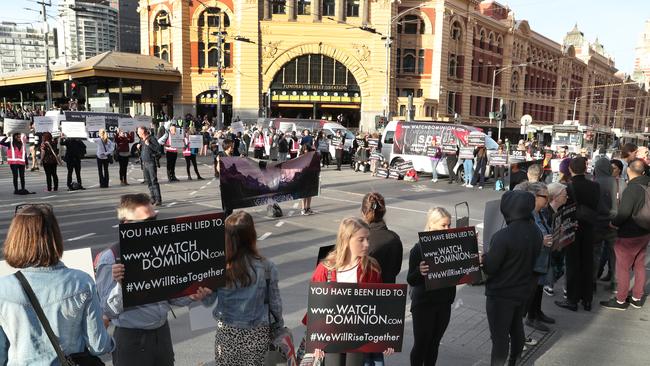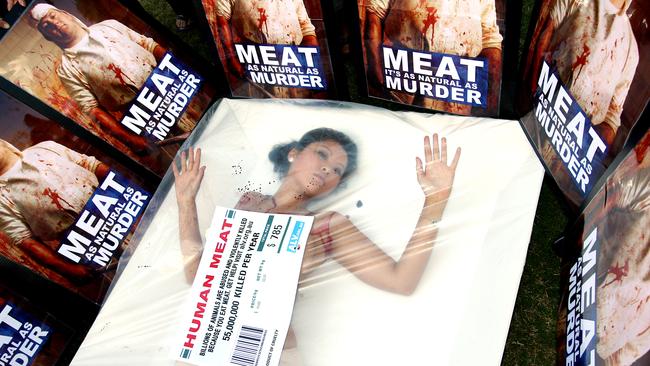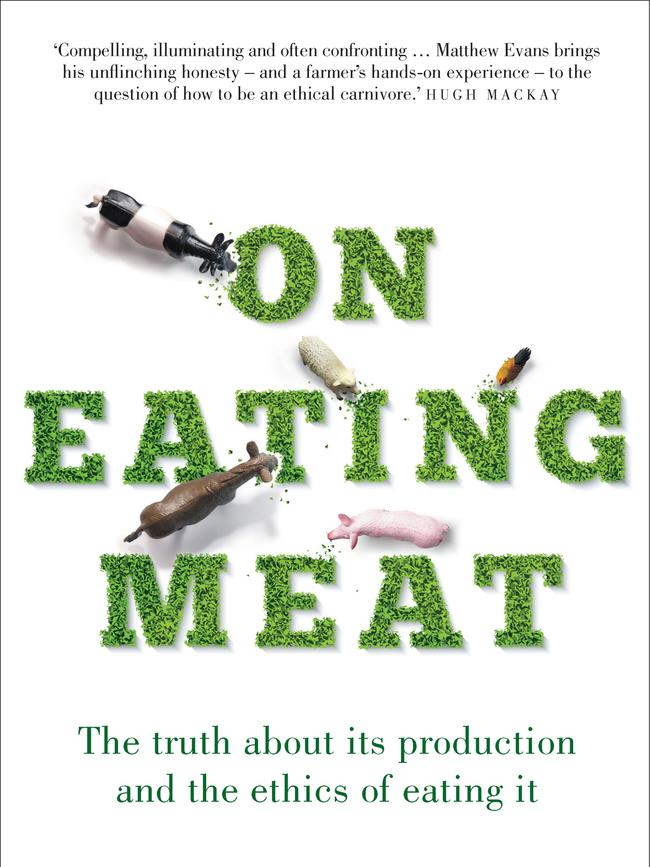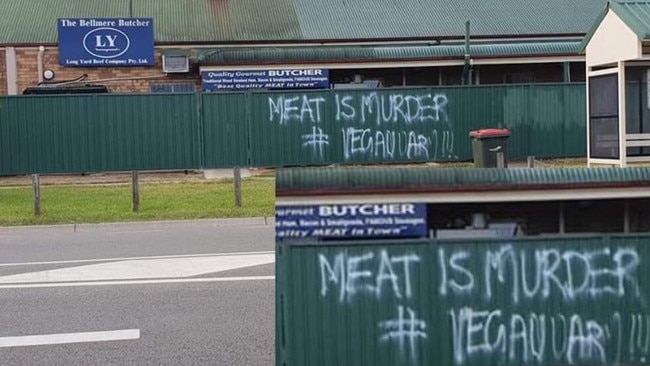Susie O’Brien: Preachy vegans should be silenced by new book on true cost of plant-based diets
They might preach about their ‘ethical’ choice to abandon meat, but a new book details how thousands of creatures also die for the rice, vegetables and wheat vegans eat. But it’s not likely to stop the claims of moral superiority, asks Susie O’Brien.

Susie O'Brien
Don't miss out on the headlines from Susie O'Brien. Followed categories will be added to My News.
This should wipe the smug smile off the face of vegans.
A new book by Tasmanian farmer Matthew Evans details the true cost of plant-based diets on animals.
“Don’t be fooled into thinking being vegan hurts no animal,” Evans writes in his book On Eating Meat: The truth about its production and the ethics of eating it.
“When you eat, you’re never truly vegan. When humans grow and process food, any food, other things die,” he says.
Evans details a pea farm in Tasmania that produces 400 tonnes of peas, but kills thousands of animals in the process.
For every 75 hectare of peas, 1500 animals die each year, including possums, wallabies, ducks and deer, not to mention many more rodents.
This process is replicated at farm after farm around the country.
How do vegans explain the one billion mice that are killed each year in Western Australia alone?

The 200,000 wild ducks killed in one year by NSW rice farmers?
Evans estimates he kills close to 5000 moths, slugs and snails each year in order to grow vegetables at Fat Pig Farm, his property in the Huon Valley.
One scientific analysis from the University of NSW quoted by Evans concludes that “25 times more sentient beings die to produce a kilo of protein from wheat than a kilo of protein from beef”.
Most of them are mice, but surely vegans care about them too?
Evans even argues so-called vegan wine involves the crushing of animals such as mice, spiders, lizards, snakes and frogs as part of the grape picking process. It’s no wonder he labels it “a furphy”.
He points out that killing animals is, unfortunately, part of everyday life.
Every time a road is built, goods are flown by plane, grain is farmed, sand is mind or houses are erected, ecosystems containing animals are altered.
It’s a compelling — and reassuring — argument for a nation of meat-eaters like Australians.
I welcome the suggestion that vegans should care about all animals: not just the pig that dies to produce bacon, but the rodent that dies so rice can be grown or wheat can be harvested.
You might expect Evans — a meat, fruit and vegetable farmer — to hold this view.

But he’s also very disparaging about the closed-door, exploitative practices of some of his fellow farmers.
His book details the shortcomings of many animal producers, and gives us good reason to be suspicious of the provenance of the $5 cooked chook on the supermarket shelf
He calls on farmers to adopt more transparent, accountable and humane practices and calls on consumers to opt for more ethically-sourced meats.
This is important because Australians are eating more meat than ever.
I agree with Evans that it’s time for a more sensible discussion about animals that respects meat eaters as well as vegans.
It makes sense to involve meat producers and farmers in the debate rather than shut them out altogether.
I object to the view held by many vegans that the only way to be morally pure is to stop eating meat altogether.
They’re very secure in claiming the ethical superiority of their position.
Every time I write a story questioning why vegans are so obsessed with making their plant food look and taste like meat, I’m bombarded with vegans boasting about the merits of their “ethical, healthful and environmentally sound choices”.
“I make a conscious choice not to eat murdered animals,” said one. “The reason I stopped eating meat was due to the fact I no longer wanted to pay people to do brutal & violent things to animals that I would NEVER do myself,” said another. “I love meat but not animal cruelty,” said a third.
But that doesn’t stop vegan activists from eating plants that harm animals in their production.
It doesn’t stop them harassing farmers and endangering animals when they break into farms to mount their petty protests.

MORE SUSIE O’BRIEN:
SEX ASSAULT ISN’T FUNNY, SWANNY
Recently they’ve been causing chaos by stopping traffic in the middle of Melbourne in peak hour, storming steak restaurants, slapping offensive labels on supermarket meat and holding vigils for cows outside slaughterhouses.
None of this is going to win over the average meat lover.
Just as unappealing are highly-processed pseudo meats favoured by many vegans.
A vegan cheeseburger may give its eater bragging rights at dinner parties, but there’s nothing very natural about the way it is made.
To make a plant patty look, cook, taste and smell like meat involves no less than 70 ingredients.
As Evans says, the “no-meat diet isn’t the answer. Neither is the attitude”.
Finally, someone has the numbers and the nous to call out the sanctimonious, self-satisfied vegans who think they’re better than the rest of us.
Vegans, like meat eaters, have blood on their hands, and it’s time they owned up to it.
Susie O’Brien is a Herald Sun columnist


